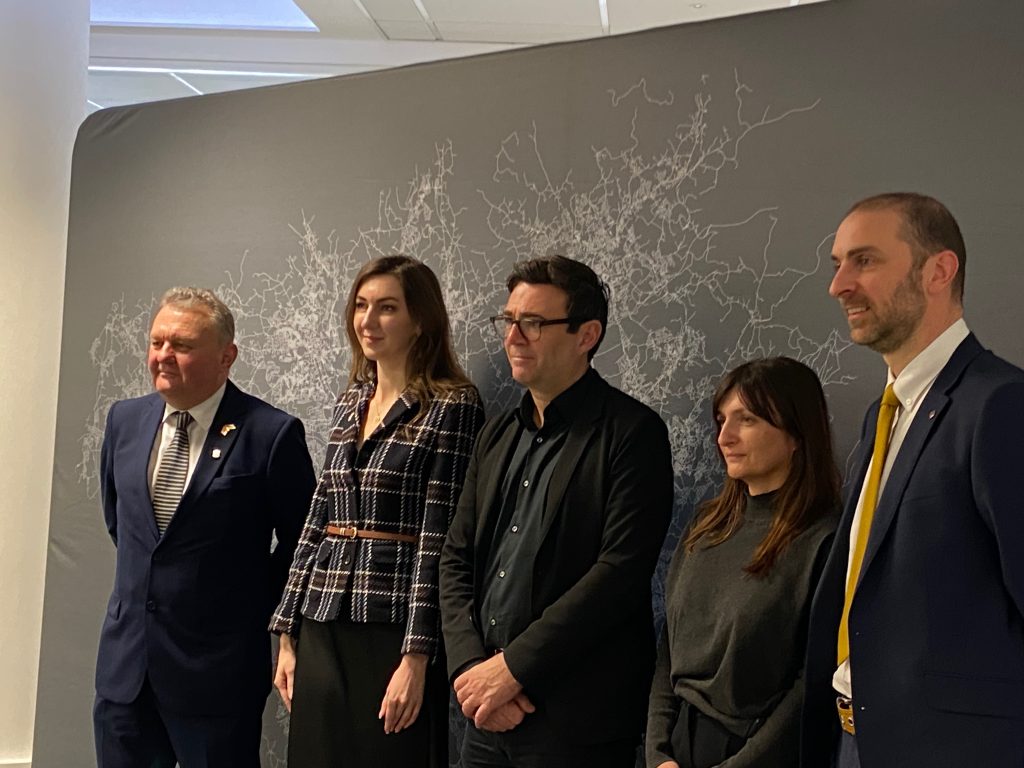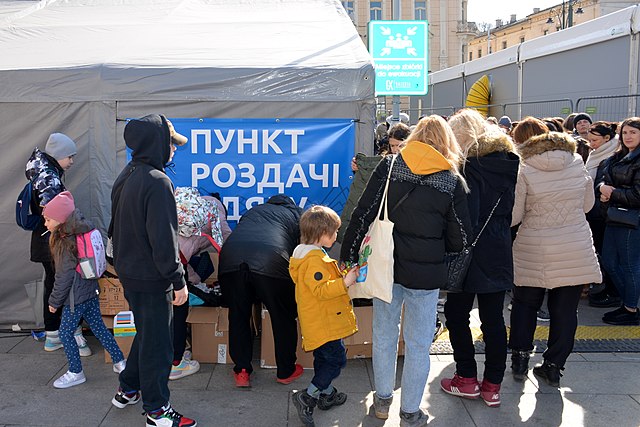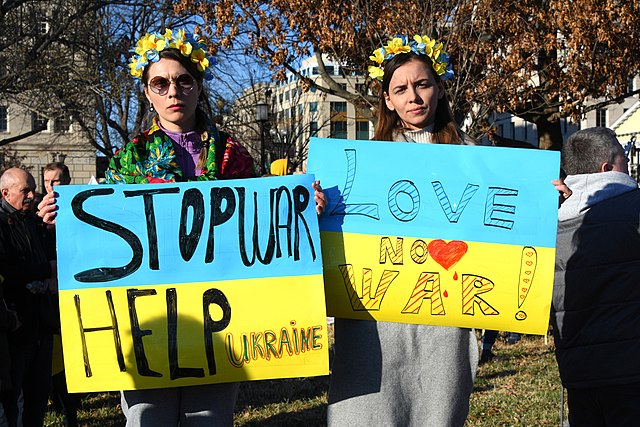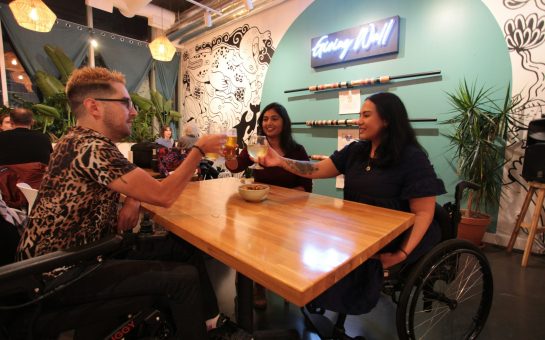Two years on from Russia’s invasion of Ukraine, Greater Manchester Mayor Andy Burnham reaffirmed the city’s support for the war-torn country.
Speaking alongside representatives from the Association of Ukrainians in Great Britain and the Manchester-based charity UK-Med, Mr Burnham commented on the importance of standing by Ukraine for as long as it takes.
Burnham said: “We made commitments to [the Ukrainian people] two years ago that we would stand with them, and this city region of ours does not make commitments like that lightly.
“We see you, we welcome you, we continue to welcome you here and we’ll stand with you for as long as it takes. We’re never fair-weather friends here in Greater Manchester, we’ll always stick the course.
“We must not forget Ukraine.”

The invasion began with Russian rocket strikes across Ukrainian cities in the early hours of 24 Feburary 2022.
Ground troops quickly followed, taking over swathes of land in the east and south of the country.
A swift Ukrainian resistance prevented the capital, Kyiv, from falling into Russian hands.
Now, two years on, the frontline remains a stalemate, according to the Institute of the Study of War, with Russia still occupying approximately 18% of Ukraine’s territory.
Fighting remains intense, and once-thriving cities such as Mariupol have been reduced to ruin.
As floods of desperate refugees left the country in the weeks and months after the invasion, many settled in Greater Manchester thanks to the success of the government’s ‘Homes for Ukraine’ scheme.
Though dreaming of the day they will be able to return home, Ukrainians have embraced community life in the UK, according to Petro Rewko, the Chair of the Association of Ukrainians in Great Britain.
He said: “They’ve integrated into community life because they see something takes the mind off of what’s going on in Ukraine.
“It’s still hard, still heart-breaking, and we all want this to come to an end as soon as possible.”
In a symbolic gesture of support, Mr Burnham announced that Greater Manchester will be recognising the mass-killing of Ukrainians by the Soviet Union between 1932 and 1933 – known as the Holodomor – as a genocide.
Historians estimate between 3.5 to 7 million Ukrainians died as a result the man-made famines caused by Stalin.
Mr Burnham said that people must recognise that Russia’s invasion of the country is not the first time Ukrainian identity has come under attack.
He said: “It’s about recognising past injustice as well as what’s happening now. It will give some strength to the Ukrainians here and back in the country at this difficult time.
“We recognise how [Ukrainians] see this as an existential attack on their culture and identity and that’s why we’re trying to help on every single level.”
There are plans for the fourth Saturday in November to be designated as a special day of remembrance.

Rewko stressed the importance of cities and local authorities recognising the genocide.
He said: “It’s phenomenal.
“If many authorities around the country recognise [the Holodomor] then hopefully the government will as well.”
The Mayor is also bringing together cities from around the world into a scheme to help support the Ukrainian city of Lviv, in response to a call by its Mayor Andriy Sadoviy to help it become Ukraine’s national rehabilitation for prosthetics and mental health.
Called the Unbroken Cities Network, Mr Burnham met with Mr Sadoviy in Washington D.C. a few weeks ago to discuss how cities around the world could help the city by sending medical support and advice.
Part of that support would include the efforts of charities such as UK-Med, who have been training doctors in reconstruction surgery since the start of the war.
The charity is appealing for donations to help continue its work in Ukraine, which can be made at www.uk-med.org .
Featured image credit: Wikimedia commons




